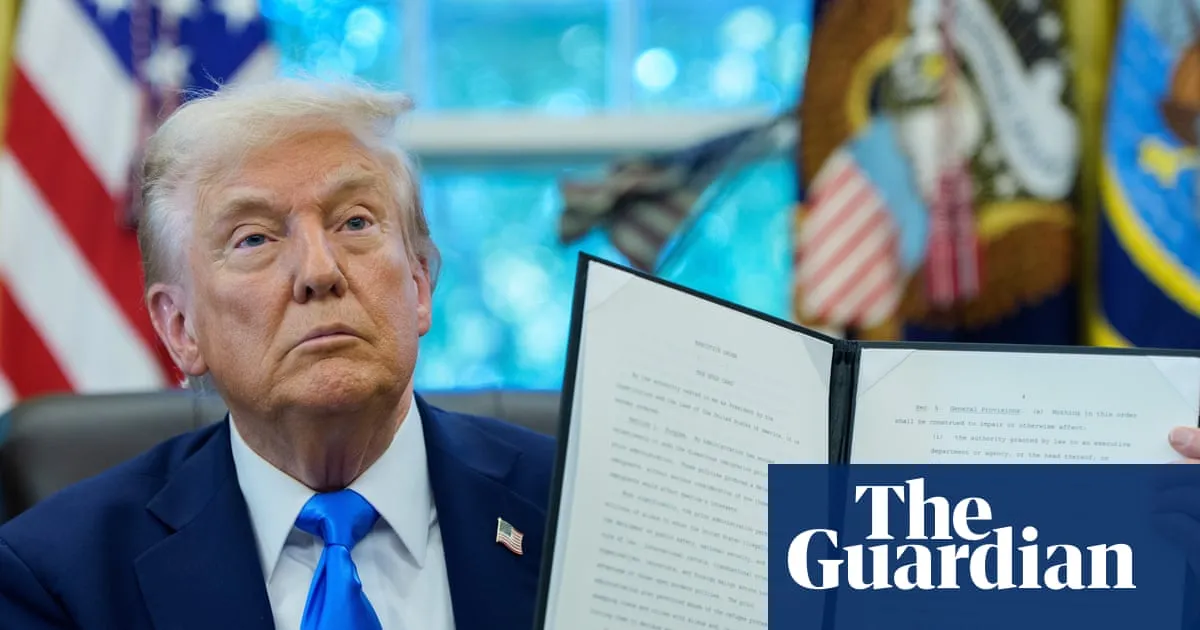
Donald Trump recently signed a proclamation imposing a hefty annual fee of $100,000 on H-1B visa applications. This move threatens to significantly impact the US tech industry, which heavily relies on skilled workers from India and China. During a press briefing on Friday, US Commerce Secretary Howard Lutnick disclosed that “all the big companies” were briefed about this new fee. At an event in the Oval Office, Lutnick stated, “A hundred-thousand dollars a year for H-1B visas, and all of the big companies are on board. We’ve spoken to them.”
Lutnick emphasized the importance of training American graduates instead of bringing in foreign workers, urging companies to “Train Americans. Stop bringing in people to take our jobs.” This announcement has reignited tensions between the Trump administration and the tech sector, especially considering the significant financial contributions tech companies made to Trump's presidential campaign.
The H-1B visa program is critical for the tech industry, as it allows employers to hire specialized foreign workers. Approximately two-thirds of the jobs filled through the H-1B program are related to computer science, according to government data. Additionally, the program is utilized to recruit engineers, educators, and healthcare professionals. For instance, in the first half of 2025, Amazon secured over 10,000 H-1B visas, while Microsoft and Meta Platforms each received over 5,000 approvals.
Each year, the H-1B program provides 65,000 visas for temporary foreign workers in specialized fields, along with an additional 20,000 visas reserved for individuals with advanced degrees. While critics, including numerous US tech workers, argue that this program suppresses wages and disadvantages American workers, supporters, such as Tesla CEO Elon Musk, contend that it is vital for attracting highly skilled workers necessary for maintaining competitiveness and innovation.
Musk, a naturalized US citizen who was once an H-1B visa holder himself, has voiced concerns regarding the new fee. Venture capital expert Deedy Das stated on X that the imposition of such fees “creates disincentive to attract the world’s smartest talent to the US.” He warned that failing to attract the best talent could severely limit the country’s capacity for innovation and economic growth.
The introduction of this new fee could significantly increase operational costs for businesses, particularly for smaller tech firms and startups. Lutnick noted, “Either the person is very valuable to the company and America, or they are going to depart and the company is going to hire an American.” He reiterated that the goal of immigration policy should focus on hiring Americans while ensuring that only the most qualified individuals are allowed entry.
However, immigration experts are raising concerns about the legality of this fee. Aaron Reichlin-Melnick, a senior fellow at the American Immigration Council, asserted on Bluesky that the president holds “literally zero legal authority” to impose such a high fee on visas. He explained that the only authority Congress has given the executive branch is to charge fees that cover the cost of processing applications.
Currently, H-1B applicants face a minor fee to enter a lottery system, and if selected, they incur additional fees that can total several thousand dollars, most of which are paid by employers. The visas are typically granted for a duration of three to six years.
This recent proclamation marks yet another attempt by the Trump administration to tighten legal immigration policies or generate additional revenue from them. Just last month, the US initiated a pilot program allowing consular officers to require bonds of up to $15,000 for tourist and business visas from nations with high overstay rates. This initiative follows a travel ban enacted by Trump in June that restricted entry from 19 countries.
In his first term, Trump’s administration implemented several regulations aimed at limiting access to H-1B visas, directing them to higher-paying employers; however, these regulations were subsequently blocked in federal court. This latest move underscores the ongoing conflict between immigration policies and the needs of the US tech industry.